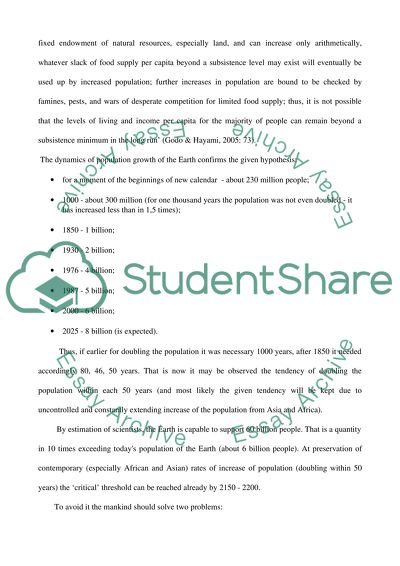Cite this document
(“Ecology and Overpopulation Essay Example | Topics and Well Written Essays - 1750 words”, n.d.)
Ecology and Overpopulation Essay Example | Topics and Well Written Essays - 1750 words. Retrieved from https://studentshare.org/environmental-studies/1522601-ecology-and-overpopulation
Ecology and Overpopulation Essay Example | Topics and Well Written Essays - 1750 words. Retrieved from https://studentshare.org/environmental-studies/1522601-ecology-and-overpopulation
(Ecology and Overpopulation Essay Example | Topics and Well Written Essays - 1750 Words)
Ecology and Overpopulation Essay Example | Topics and Well Written Essays - 1750 Words. https://studentshare.org/environmental-studies/1522601-ecology-and-overpopulation.
Ecology and Overpopulation Essay Example | Topics and Well Written Essays - 1750 Words. https://studentshare.org/environmental-studies/1522601-ecology-and-overpopulation.
“Ecology and Overpopulation Essay Example | Topics and Well Written Essays - 1750 Words”, n.d. https://studentshare.org/environmental-studies/1522601-ecology-and-overpopulation.


